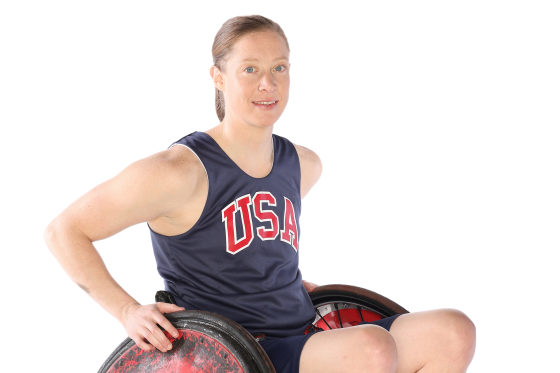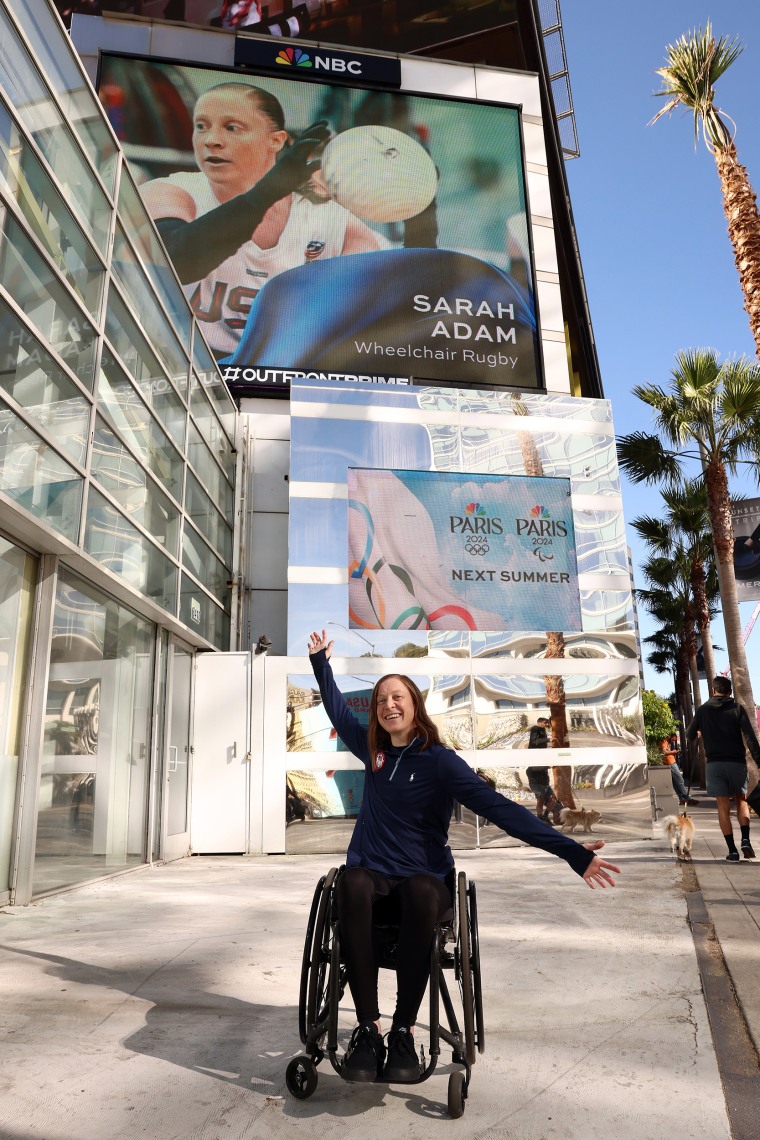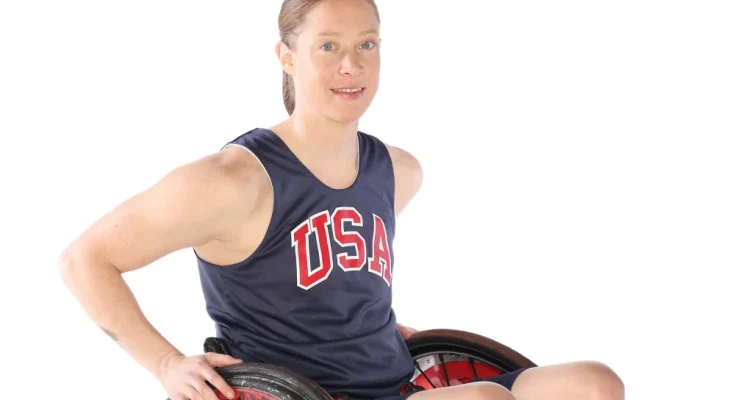After fully embracing life in a wheelchair, she’s riding it straight to the Paralympic Games

Sarah Adam says her wheelchair is “not a barrier. If anything, it just makes my life so much better.”
In 2014 at 22 years old, Sarah Adam was successfully building the life she wanted. She graduated from Augustana College in her native Illinois and embarked on a fulfilling career in occupational therapy, helping kids and adults with physical disabilities participate in adaptive sports.
But that year also represented a life-changing moment for Adam. While she was halfway through her graduate program at Washington University in St. Louis, she started to realize her own physical disabilities.
“We were doing a class testing hand function and my professor said, ‘hey, that hand doesn’t look quite right, you should get that looked at.’” Adam, who will compete on the U.S. wheelchair rugby team in the Paralympics this month, said. “And so they thought it was just a nerve injury and then other symptoms came about that were hard to ignore.”
Just days shy of her graduation in May 2016, Adam was diagnosed with multiple sclerosis, an unpredictable disease of the central nervous system that disrupts signals to and from the brain.
Symptoms include numbness, tingling, mood changes, memory problems, pain, fatigue, blindness and/or paralysis. These losses may be temporary or long lasting depending on the person.
Adam initially struggled to come to terms with her diagnosis and didn’t tell anyone at first, including her family.
“I think a lot of it’s because you hope that that’s not what’s actually going on,” she said. “You hope that it’s nothing. You don’t want to worry people. With my parents in particular, I just didn’t know how or when to bring it up. It’s not an easy phone call to make. And so I just kept kind of putting it off and trying to wrap my own mind around. My whole identity is being an athlete and active individual and the MS diagnosis…what am i supposed to do? Just sit and watch that all get stripped away slowly?”
Adam was so worried about telling her family, she waited seven months to tell her mother.
“I wanted to kind of digest the diagnosis myself,” Adam said. “Still a little bit of denial. I didn’t really notice many changes in my body or how I was going about living life. But once she started to see me using a leg brace and struggling to walk and something started to become more difficult was when I could see her become a little bit more concerned about what my future was.”

Adam eventually turned to her passion of sports and competition as an outlet, hoping to keep her life centered after her MS diagnosis. After initially participating as an able-bodied volunteer in wheelchair rugby at Washington University, she started playing the sport recreationally in 2017.
At first, Adam was able to move around without a wheelchair outside of the sport, but eventually would start seeing notable declines in her mobility.
“I had mostly weakness on my right side that also affected my right leg,” she said. “It was hard for me to pick up my leg. So anytime I was walking, it was really slow. I was getting really fatigued and tripping and falling a lot and hurting myself.”
When Adam started playing wheelchair rugby competitively in 2019, she learned to see her wheelchair in a different light outside of competition. It hit her fully when she competed in a tournament in Houston and her “body was exhausted.”
“I think that was the moment when I realized, ‘why am I struggling and pushing myself to walk when it’s just a little bit easier to just get in a chair, be able to keep up with my teammates, not be exhausted, be able to compete the next day?’”
But Adam wondered how people would view her using a wheelchair on a day-to-day basis. However, she prioritized freedom in her life and five years after her diagnosis, she embraced using her wheelchair full time.
“My wheelchair is my freedom to do the things I want, need to do throughout my day in an easier and a safer way to conserve my energy,” she said. “It’s not a barrier. If anything, it just makes my life so much better. But that was a tough moment to make that decision and not one that I think a lot of people in society understand.
“I know my mom didn’t, my family didn’t understand it for a while. It took me kind of explaining and them seeing me and how much easier it made my life when I was going out and about in the community, that I could actually enjoy what we were doing instead of being so focused on just being able to walk and get around.”
Adam also realized that her passion for wheelchair rugby wasn’t just a way to stay active. It was something she was really good at.
In December 2021, she was invited to try out for the U.S. national team where she earned a spot on the roster. Less than a year after officially joining the wheelchair rugby team in St. Louis, Adam made her international debut at the Americas Championship in 2022, winning gold, and later that year won silver at the World Championships in Denmark.
“I think it’s more in the vein of being able to break down those stereotypes of what females can accomplish on a court or in sport and being able to break down that barrier,” she said.
Adam’s focus is now on Paris for the 2024 Paralympics. In April, she made history as the first woman named to the U.S. Paralympic Wheelchair Rugby Team.
She said she hopes to be an inspiration to other athletes with disabilities that anything is possible in life.
“We all have something that we’re working through. We all have some adversity in our life. We all have a disability of some sort,” she said. “And so then it almost makes it easier to see us as a person first or as an athlete first because the disability isn’t highlighted as much as we all have one … that’s what I’ve appreciated from the beginning.”



